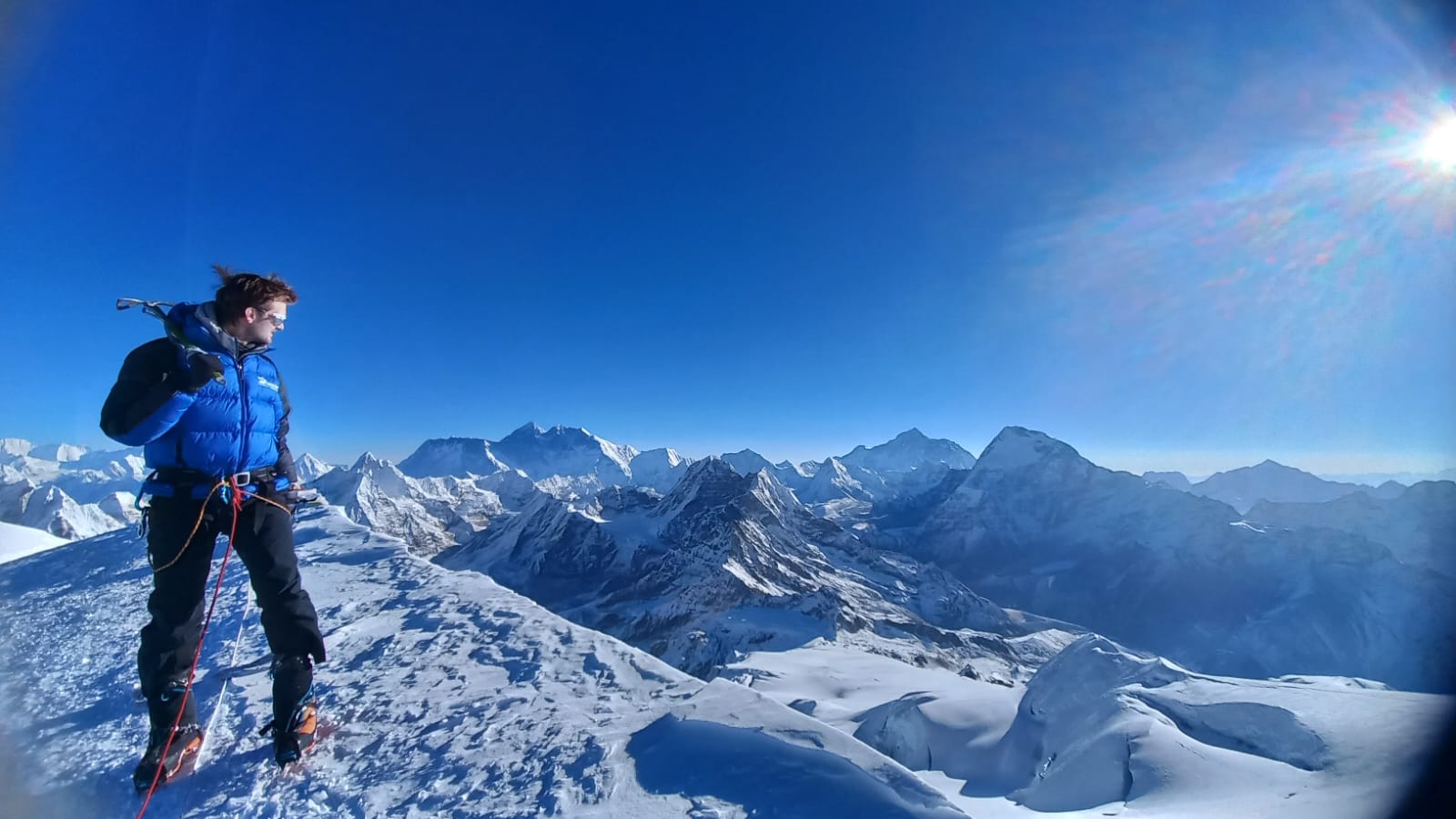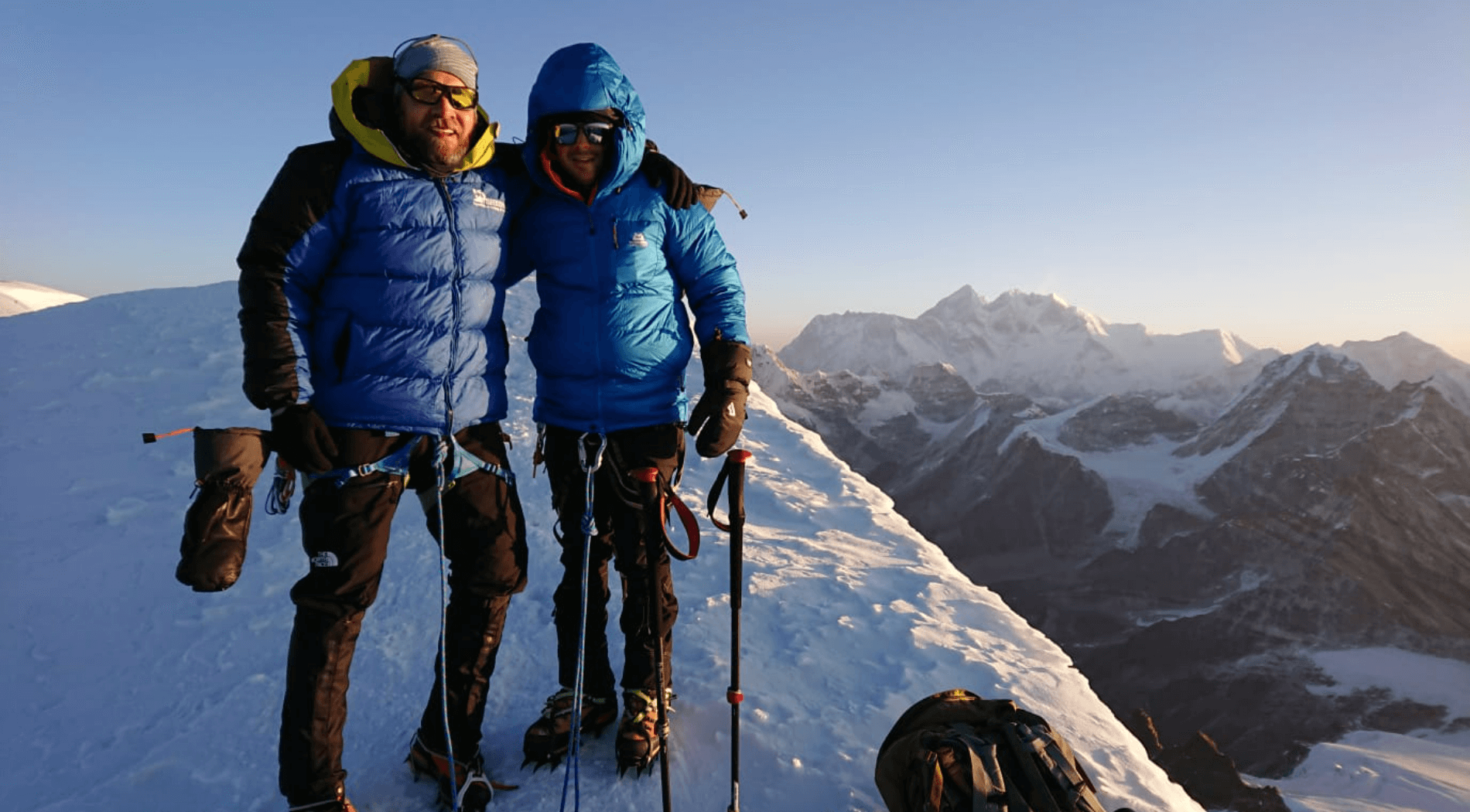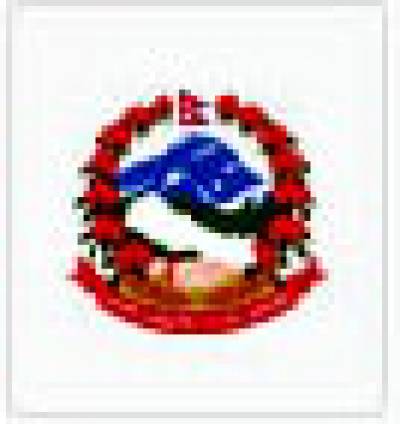MERA PEAK EXPEDITION 14 DAYS
The Mera Peak Expedition is a 14-day trek that offers a unique and challenging route to the summit of Mera Peak. The Upper Route is a less-traveled path that takes you through some of the most remote and stunning landscapes in the Himalayas.
The trek starts with a scenic flight from Kathmandu to Lukla, followed by a trek to Chutanga. From there, we will head towards Tuli Kharka and then to Mosom Kharka, where we will spend a day acclimatizing to the altitude.
The next few days will be spent trekking to Thangnak, where we will again spend a day acclimatizing. From Thangnak, we will head towards Khare, the last village on the trek, before heading towards Mera Base Camp.
The Upper Route offers stunning views of the surrounding mountains, including Everest, Lhotse, Makalu, and Cho Oyu. The climb to Mera High Camp is steep and strenuous, but the views from the top are truly breathtaking.
The final ascent to the summit of Mera Peak starts early in the morning, and it takes about 6-7 hours to reach the top. The summit offers panoramic views of the surrounding mountains, and the sense of accomplishment upon reaching the top is indescribable.
After spending some time at the summit, we will descend back to Mera Base Camp and then continue our trek back to Lukla, via Khare and Mosom Kharka.
The Upper Route of the Mera Peak Expedition is a challenging trek that requires a good level of fitness and experience in high-altitude trekking. However, it is a truly rewarding experience that will leave you with memories that will last a lifetime. The trek offers an opportunity to explore the stunning landscapes of the Himalayas, experience the local culture, and challenge yourself physically and mentally.
ITINERARY
Day 1 : Arrival at Kathmandu Airport [1345m/4411ft] & Transfer to hotel.
Our representative will meet you at Tribhuwan International Airport. You will then be transferred to your hotel in Kathmandu city. Our staff will assist you until the check-in procedure ends at the hotel. You can either rest at the hotel or visit our office for additional information about the trip.
Day 2 : Fly from Kathmandu to Lukla and trek to Chhutang [2800m/9184ft] Duration: 3- 5 hours
Today, we will take an early morning scenic flight from Kathmandu to the airstrip in Lukla. Lukla is the gateway to Khumbu and the entire Everest region. From Lukla, we start our trek heading east into the thick forest on the hillside below the Kalo Himal Ridge. There are several trails that head away from the main trail on this section, so sticking to the group is the best option before arriving at Chhutang.
Day 3 : Trek from Chhuthang to Tuli Kharka [4100m/13448ft] Duration: 5-6 hours.
Leaving Chhutang we will follow the trail that gradually ascends and steepens as we head towards the crossing of Zatrawala Pass at 4600 meters. Our tiring climb to the top of the pass is rewarded with magnificent views of Numbur Himal, Kongdi Ri, Karyolang Peak and other surrounding peaks. Our trek goes along a level path for almost two hours before descending all the way to Tuli Kharka.
Day 4 : Trek from Tuli Kharka to Kothe [3580 m | 11,745 ft] Duration: 6-7 hours.
From Tuli Kharka, our trail is a mixture of both uphill and downhill trekking through dense forest filled with rhododendron, oak, pine and juniper trees. During our trek, we will have magnificent views of Mera Peak and surrounding snow-capped peaks. A steep descent to the Hinku River and a final uphill climb will lead us to Kothe. Kothe lies to the west side of the Hinku valley and offers serene wilderness with lush vegetation to trekkers.
Day 5 : Trek from Kothe to Thangnak [4326m/14189ft] Duration: 4-5 hours.
Our trail from Kothe goes along the ridge of the Hinku river towards Gondishung. We will pass through Lungsumgba Gompa which was built approximately 200 years ago. Here we can find Mera Peak along with its route scripted in rock, a fantastic example of rock carving architecture. Our trek continues along a rather easy walking trail that leads to the summer grazing area of Thangnak where there are shops and tea houses.
Day 6 : Trek from Thangnak to Khare [5000m/16400ft] Duration: 3 hours.
Our trail from Thangnak goes over the lateral moraine towards Hinku Nup and Shar Glaciers. From there, the trek involves a steep climb all the way to Khare. We will enjoy the magnificent view of the Northern Face of Mera Peak from Khare. Besides, Khare offers a number of good hikes for exploration and acclimatization.
Day 7 : Acclimatization day at Khare
Acclimatization is essential in higher altitudes to avoid mental and physical sickness. As we are above the 5000 meters altitude, we will spend a rest day at Khare for acclimatization and exploration. Our Sherpa team will make necessary checks on our climbing gears including ropes, ice axes, crampons, harness, and other equipment before heading further to higher camps.
Day 8 : Trek to Mera High Camp [5700m/18696ft] Duration: 5 hours.
Leaving the Khara, we will follow the trail that climbs over through Mera La Pass and continue trekking along the rocky and often snow-covered trail towards Mera Peak High Camp. Once at the high camp, our Sherpa crew will quickly set up the camps and make necessary checks on our health conditions and climbing gears. From the high camp, we can enjoy amazing views of Everest, Makalu, Nuptse, Cho Oyu, Baruntse, and Chamlang.
Day 9 : Summit Mera Peak [6461m/21192ft] and descend to Khare Duration: 8-9 hours
Today is the day we all have been desperately waiting for. Properly equipped and fully acclimatized, we start early with the aim to reach the summit before noon. Strong winds after midday can create obstacles in reaching the summit. We start around 2 in the morning and after having breakfast we climb up the glacier and onto a ridge. Once at the top, we are rewarded with magnificent views of five spectacular 8000-meter peaks – Everest 8848 m, Cho Oyu 8201m, Makalu 8463 m, Kanchenjunga 8586 m as well as Nuptse 7855 m and Chamlang 7319 m. After spending quality time at the Mera Peak summit, we will descend using the same route and head back to reach Khare for our overnight stay.
Day 10 : Trek back from Khare to Kothe Duration: 4-5 hours
After having achieved our target – the summit of Mera Peak, we will retrace our steps from Khare and pass through Thangnak before heading further towards Kothe. With mostly downhill trekking, we will leave the high altitudes and enter into the dense sub-tropical forest filled with rhododendron, oak, pine and birch trees. We trek until we arrive at Kothe.
Day 11 : Trek from Kothe to Tuli Kharka Duration: 5-6 hours
Leaving Kothe, our trail is uphill trekking through dense rhododendron forest that goes over the western section of Hinku valley towards Tuli Kharka. Duration 6-7 hours From Tuli Kharka we can enjoy the magnificent views of Mera North, Mera Central and south face of Mera Peak.
Day 12 : Trek from Tuli Kharka to Lukla via Zatrawala Pass Duration 6-7 hours.
Today is the last day of our trekking. From Tuli Kharka we will ascend for the crossing of Zatrawala Pass and from the top of the pass, we descend to finally arrive back to Lukla. In the evening, we will celebrate the successful Mera Peak Climb.
Day 13 : Flight back from Lukla to Kathmandu.
We will take an early morning scenic flight from Lukla back to Kathmandu. You will be transferred to the hotel after landing at the airport. You can either have rest at hotel or visit sites that weren’t possible on the second day of the trip. Enjoy your leisure time at Kathmandu.
Day 14 : International departure from Kathmandu.
Today, last day in amazing Nepal with great experience and fond memories of Mera Peak Climbing, as per your time for an international flight, Sherpa Expedition and Trekking member transfer you to the airport for your final departure homeward bound or to your next destinations. Breakfast Included.
SERVICES
Costs included in your package.
- Airport picks up and transports by private Car/Jeep.
- Two night’s standard twin sharing Hotel in Kathmandu with breakfast.
- Three meals a day (Breakfast, lunch, and dinner) during the trek.
- Fresh fruit every evening after dinner.
- Trekking Lodge (Tea House) during the trek and tent camp accommodation during climbing session.
- All necessary paperwork including Makalu Barun National Park Pemit Entry fees.
- Kathmandu-Lukla-Kathmandu (Ramechhap -Lukla- Ramechhap) flight with private airport transfer and domestic airport tax.
- A highly experienced, helpful, knowledgeable, friendly, English speaking well trained, Government license holder guide with all his salary, food, drinks, accommodation, transport and insurance.
- Climbing permit of Mera Peak.
- Strong, helpful Sherpa porters with proper safety equipment and walking equipment, his salary, food, accommodation, and insurance (one porter for two people).
- Comprehensive medical supplies (first aid kit will be available).
- Arrangement of emergency helicopter service (paid by your Travel Insurance Company).
- Use of sleeping bag, down jacket, duffel bag and walking poles (if you don’t have your own, to be returned after trip completed).
- Sherpa Expedition and Trekking T-shirt
- Government taxes and official expenses.
- Trip achievement certificate after successful trip completion.
- Oxygen meter to check your pulse and oxygen saturation and heart rate twice daily (Very useful to check Altitude Mountain Sickness(AMS) symptoms) which will ensure your health during the trek.
- Assistant guide for groups of 8 or more people.
Costs Exclude
- Meals whilst you are in Kathmandu - lunch, and dinner.
- Nepal entry visa fee (easy to obtain the visa on arrival at Tribhuvan International Airport – Kathmandu). $30 USD for 15-day, $50 USD for 30 Days, and $125 USD for 90 Days visa.
- Personal travel and medical insurance.
- International airfare.
- Your personal expenses.
- All the alcoholic and nonalcoholic, soup, tea, coffee, hot chocolate, cocoa, mineral water, extra food, cold and hot drinks on trek ( i.e. those you choose to purchase along the way and during evenings in the tea houses)
- All desserts & sweet things like chocolate, cake, pie, pudding.
- Hot shower and battery charging at the tea houses.
- Tips for the guide, porter, and driver (tipping is expected)
- Excess baggage of more than 10 kg for Lukla flight.
- NOTE: If you return earlier from the trek due to sickness or any problem, the money you paid for the flight, hotel, mountain room, food, etc. is nonrefundable, and you will need to bear the expenses for the hotel, food, etc. in Kathmandu yourself.
EQUIPMENTS
You will be carrying all of your gear and share some of the cluster gear. Keeping your pack light is important, so choose light-weight clothing and equipment. Be sure to have a range of clothing suitable for all conditions. Sudden change of weather may require layering of clothing. Three layers will meet your needs. Avoid cotton or fabrics that do not maintain heat when cold. Comfortable durable wool (or proven fabrics) that breathe and expel sweat lends itself to an additional pleasant experience!'
We will offer complimentary water and a windproof duffle that you'll use on the trek - carried by porters. The duffle is yours to keep once at the end of the trek. You can safely leave your bag, together with your non-trekking requirements, at our office in Katmandu and collect them upon your return.
All equipment, such as base camp tents, room accessories, climbing rope, ice screws, snow bar and ice hammer is provided by Sherpa Expedition & Trekking.
Upper Body:
- Base Layers: Moisture-wicking and quick-drying shirts and thermal tops.
- Insulation Layers: Fleece or down jackets to provide warmth.
- Waterproof Shell Jacket: A durable and breathable jacket to protect against wind and rain.
- Softshell Jacket: A lightweight and water-resistant jacket for added protection.
- Climbing Harness: A comfortable harness to secure yourself to the rope.
- Helmet: A strong and well-fitting helmet to protect your head from falling objects.
- Gloves: A combination of lightweight liner gloves and insulated gloves or mittens for warmth and dexterity.
- Buff or Neck Gaiter: To protect your neck and face from cold and wind.
- Sunglasses: Polarized and UV-protected sunglasses to shield your eyes from the sun and snow glare.
- Goggles: Ski or mountaineering goggles for added eye protection in extreme weather conditions.
Lower Body:
- Base Layers: Moisture-wicking and quick-drying thermal bottoms.
- Insulation Layers: Fleece or insulated pants for added warmth.
- Waterproof Shell Pants: Durable and breathable pants to protect against wind, rain, and snow.
- Softshell Pants: Lightweight and water-resistant pants for added protection.
- Mountaineering Boots: Sturdy and insulated boots designed for snow and ice.
- Crampons: Attachable spikes that provide traction on icy terrain.
- Gaiters: Waterproof and breathable gaiters to keep snow out of your boots.
- Socks: A combination of moisture-wicking liner socks and thick, warm mountaineering socks.
Other Essential Items:
- Backpack: A spacious and sturdy backpack to carry your climbing gear and personal belongings.
- Sleeping Bag: A warm and lightweight sleeping bag that can withstand sub-zero temperatures.
- Trekking Poles: Adjustable trekking poles for added stability and support.
- Headlamp: Essential for climbing in low-light or dark conditions.
- Water Bottles: Insulated water bottles to keep your water from freezing.
- Sunscreen: High SPF sunscreen to protect your skin from the strong sun at high altitudes.
- First Aid Kit: A comprehensive first aid kit with essential medications and supplies.
- Climbing Snacks: Energy bars, nuts, and other lightweight snacks for quick fuel during the climb.
It is important to invest in high-quality gear and ensure that everything fits properly and is in good condition. Additionally, consult with experienced climbers or a professional guide to ensure you have all the necessary gear and receive proper training on how to use it effectively and safely.
GOOD TO KNOW
Mera Peak is one of the popular trekking peaks in Nepal, standing at an elevation of 6,476 meters (21,247 feet). Here are some important details about Mera Peak climbing:
1. Location: Mera Peak is located in the Khumbu region of Nepal, in the Solu-Khumbu district. It lies in the vicinity of the Everest region.
2. Difficulty Level: Mera Peak is considered a moderately difficult climb. It requires a good level of physical fitness and previous trekking experience is recommended. Some technical climbing skills may be required, especially towards the summit.
3. Permits: As with any climbing expedition in Nepal, you will need to obtain climbing permits. For Mera Peak, you will need a climbing permit issued by the Nepal Mountaineering Association (NMA) and a Sagarmatha National Park permit.
4. Route: The most common route for Mera Peak climbing is the Mera La pass route. The journey begins with a flight from Kathmandu to Lukla, followed by a trek to Mera Peak Base Camp via various villages like Paiya, Pangkongma, and Khare. The summit push is usually made from High Camp (5,800 meters).
5. Duration: The typical duration for Mera Peak climbing is around 18-20 days, including acclimatization days and trekking to and from Lukla.
6. Accommodation: During the trek, you will stay in teahouses or lodges available in the villages along the route. However, at higher altitudes, you will need to set up tents for camping.
7. Best Time to Climb: The best time to climb Mera Peak is during the spring (March-May) and autumn (September-November) seasons. These months offer stable weather conditions and clear views of the surrounding mountains.
8. Safety: Climbing Mera Peak requires proper acclimatization and preparation. It is advised to climb with an experienced guide or join a reputable trekking agency that provides experienced guides and necessary equipment.
9. Equipment: Some essential climbing equipment required for Mera Peak climbing includes crampons, ice axe, harness, helmet, ropes, and proper clothing suitable for high altitude conditions. It is recommended to rent or buy these items in Kathmandu before starting the trek.
10. Fitness Requirements: Good physical fitness is essential for Mera Peak climbing. Regular cardio exercises, strength training, and hiking in similar terrain can help prepare your body for the climb.
Remember, Mera Peak climbing is a challenging adventure that requires proper planning, preparation, and guidance. It is always recommended to consult with experienced climbers or trekking agencies for more detailed and up-to-date information.
MAP
PHOTOS/Videos
Departures
Select a departure month
Fill out the form below and a Travel Expert will reach out to create your perfect tour.
FAQS
How difficult is Mera Peak climbing?
Mera Peak is considered a moderately difficult climb. It requires a good level of physical fitness and previous trekking experience is recommended. Some technical climbing skills may be required, especially towards the summit.
Do I need any climbing experience to climb Mera Peak?
While previous climbing experience is not mandatory, it is highly recommended to have prior trekking experience at high altitudes. Basic mountaineering skills such as using crampons, ice axe, and ropes are essential. It is advisable to climb with an experienced guide or join a reputable trekking agency that provides skilled guides.
What permits do I need for Mera Peak climbing?
You will need a climbing permit issued by the Nepal Mountaineering Association (NMA) and a Sagarmatha National Park permit. These permits can be obtained through a registered trekking agency or the NMA office in Kathmandu.
What is the best time to climb Mera Peak?
The best time to climb Mera Peak is during the spring (March-May) and autumn (September-November) seasons. These months offer stable weather conditions, clear views, and favorable climbing conditions. However, it is important to check the weather forecast before starting the climb.
How long does it take to climb Mera Peak?
The typical duration for Mera Peak climbing is around 10-20 days. This includes acclimatization days, trekking to and from Lukla, and the summit push.
What kind of accommodation is available during the climb?
During the trek, you will stay in teahouses or lodges available in the villages along the route. However, at higher altitudes, you will need to set up tents for camping. Teahouses provide basic facilities such as beds, meals, and toilets, while camping requires carrying your own camping equipment.
Is it safe to climb Mera Peak?
Climbing Mera Peak requires proper acclimatization and preparation. It is advised to climb with an experienced guide or join a reputable trekking agency that provides experienced guides and necessary equipment. Safety measures, such as regular health check-ups, proper acclimatization, and emergency evacuation plans, should be in place.
What equipment do I need for Mera Peak climbing?
Some essential climbing equipment required for Mera Peak climbing includes crampons, ice axe, harness, helmet, ropes, and proper clothing suitable for high altitude conditions. It is recommended to rent or buy these items in Kathmandu before starting the trek.
Can I climb Mera Peak solo?
While it is possible to climb Mera Peak solo, it is highly recommended to climb with an experienced guide or join a reputable trekking agency. Climbing with a guide ensures safety, proper guidance, and assistance in case of any emergencies.
Can I rent climbing equipment in Nepal?
Yes, you can rent climbing equipment in Kathmandu. There are several shops and rental agencies that provide climbing gear on a daily or weekly basis. However, it is important to check the condition and quality of the equipment before renting.
Latest Traveller’s Reviews
Travel experiences of our clients who recently returned from their trips.
100%
Based On 7 Reviews
James Moe
Australia
January 1, 2024
A Highly Recommended Adventure
Our journey to Mera Peak with Sherpa Expedition was an adventure of a lifetime that we strongly recommend to all adventure enthusiasts. The well-organized itinerary, professional guides, comfortable accommodations, and breathtaking views made it a truly remarkable experience. Sherpa Expedition's commitment to providing a safe and unforgettable journey is evident in every aspect of the expedition.
Loretta Ivanich
Australia
December 5, 2023
Expert Guides and Supportive Crew
The Sherpa Expedition team provided us with expert guides who were not only knowledgeable about the Mera Peak route but also genuinely passionate about the mountains. They ensured our safety and well-being throughout the expedition, offering guidance and support every step of the way. The entire crew, including the porters and support staff, were friendly and accommodating, making us feel like part of a close-knit family.
Sonja Murer-von Gunten
United States
November 8, 2023
Breathtaking Scenery and Majestic Landscapes
The Mera Peak Expedition offered us breathtaking views and stunning landscapes. As we made our way to the summit, we were treated to awe-inspiring sights of snow-capped peaks, vast glaciers, and picturesque valleys. The beauty of the surroundings was truly mesmerizing, and the experience of witnessing it firsthand was unforgettable.
People Considering This Package Right Now Check availability
























